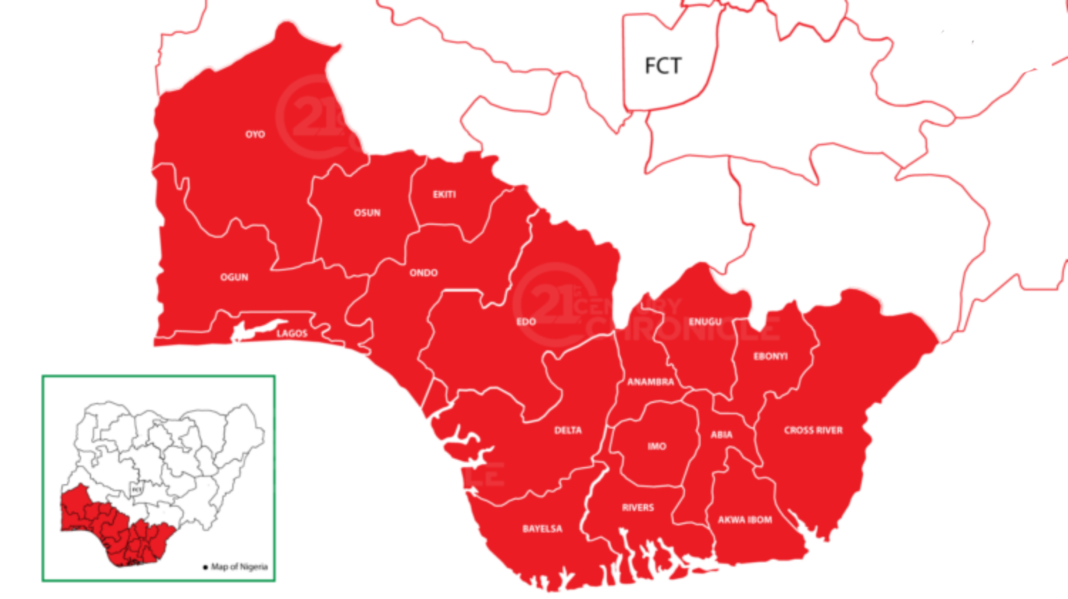Presently, the battleline appears drawn among political contenders as the two leading political parties, the All Progressives Congress, APC, and Peoples Democratic Party, PDP, intensify preparations for their forthcoming national conventions.
But even as this continues to play out, one dominant issue in the discussions of most members of the parties is the region that will clinch the chairmanship positions considering its wider implications in zoning the 2023 presidential tickets and the emergence of President Muhammadu Buhari’s successor when his second term of eight years ends.
Based on the unwritten understanding that a region that throws up the national chairman automatically loses the right to demand for the presidential slot, one will want to challenge the gladiators in both parties, especially those of Southern stock, not to leave anything to chance in convincing party supporters from the Northern region to support their helmsmen to brighten the chances of a president from the South during the next general election.
In other words, the onus now squarely lies on the shoulders of Southern governors and stalwarts of both parties to firmly and quickly reach out to their Northern counterparts and prospective national delegates across the parties for total support to actualise their earlier clamour. That is, for the sake of fairness, equity, justice, Nigeria’s continued unity and in the spirit of rotation, that the South should be allowed to take the next shot at the Presidency.
Clearly, therefore, I believe Southern Nigeria has a very solid ground to canvass for the next occupant of the coveted office in the land given that zoning of national elective offices in the PDP, for instance, has always been on the basis of North/South dichotomy.
It is not on the existing six geo-political zones beginning from the truncated Third Republic and even the current Fourth Republic dating back to 1999 when former President Olusegun Obasanjo assumed the mantle of leadership and completed his constitutional two-term tenure of eight years.
In apparent deference to the power rotation, the PDP produced Alhaji Umaru Yar ‘Adua (now of blessed memory) from the North as president in 2007; followed by Dr. Goodluck Jonathan in 2011 (South), who was later defeated by the incumbent President Buhari of the APC from the North in 2015, who made history being the first time in the nation’s democracy that a sitting president and ruling party will be defeated by a candidate of an opposition party.
However, since the APC was formed in 2013, there have been concerted voices encouraging the party to emulate the PDP by zoning its presidential ticket to the South ahead of 2023 contest.
Significantly also, it should be well noted that debates over who succeeds Buhari in the next one year and eight months have been exacerbated by the unpleasant experiences of citizens in the last six years and the apparent inability of the APC-led administration to deliver in virtually all critical areas of governance, especially implementing its change mantra anchored on total war against insecurity, zero tolerance to corruption and economic transformation.
Today, there are debilitating socio-economic challenges confronting the country, ranging from rising insecurity with terrorists, armed herdsmen, bandits and other criminals killing and maiming innocent Nigerians, including women and children, kidnappings, worsening unemployment, widespread poverty across the land, double digit inflation, rising cost of living and tensed atmosphere engendered by activities of secessionist groups.
These have made it compelling for every one to be circumspect in ensuring that only the very best, credible character with integrity, commitment and capacity to rebuild a sharply-divided country emerges as the next president.
This, rather unfortunate turn of events in our country though lamentable, has further not been helped by the parochial, tribalistic and vexatious lopsided nature of quality federal appointments by the Buhari administration with over 90 per cent of heads of security services and paramilitary outfits drawn from the North which demonstrates glaring lack of inclusiveness expected in a federal set up. This has generated so much bad blood and avoidable tension in the polity and resulted in existential threat to national unity.
Sadly also, among the several negative consequences, the Federal Government’s posture has paved the way for non-state actors such as the Indigenous People of Biafra, IPOB, to hold sway in the South East zone to the worrisome situation of issuing sit-at-home order which continues to elicit near total compliance by the people of the five South Eastern states.
It is against this backdrop that I believe and very confident too, that the South is blessed with many tested, competent and dynamic politicians, including presidential hopefuls with unblemished track record of service, experience and integrity who, if elected, can deliver on the manifesto of their respective parties and go the extra hug to provide exemplary leadership at the national level.
Besides, in my view, they further possess the requisite expertise and pedigree to run an all-inclusive government that will be adequately staffed in very key areas by the best Nigerian professionals and technocrats as was witnessed under the Jonathan administration who clearly distinguished themselves in service to fatherland as well as abreast of the dynamics of national and global economic growth and development.
Such talented Nigerians and technocrats earlier drafted by the Jonathan government included the incumbent Director-General of the World Trade Organisation, WTO, Dr. Ngozi Okonjo-Iweala, who was the Minister of Finance from 2011 to 2015 as well as Dr. Akinwunmi Adesina, President of the African Development Bank, AfDB, who previously served as Nigeria’s Minister of Agriculture and Rural Development.
I am, therefore, in total agreement with proponents of power shift to the South, among them: Governor Babagana Zulum of Borno State; his Kaduna State counterpart, Mallam Nasir el-Rufai and Governor Abdullahi Ganduje of Kano State who, while justifying it, maintained that rotation must be respected in the national interest and for the nation’s continued unity and peaceful coexistence as doing otherwise would portend grave danger for the country.
Similarly, it must also be emphasised that without any fear of contradiction, it will amount to insensitivity and an excruciating moral burden, injustice and a grave danger to national cohesion for the North to again present a candidate for the position of number one citizen after President Buhari would have completed his two terms of four years each in utter neglect of the current clamour for power shift.
Given the bitter experiences of most Nigerians who have borne the burden of underperforming Federal Government and bad governance for over six years, the country deserves fresh air under a more competent national leadership produced from the South for the needed rescue mission from 2023 in order to alleviate the current hardship faced by majority citizens, arrest deteriorating insecurity and accelerate the nation’s socio-economic and technological development.
Inwalomhe, a public affairs analyst is based in Lagos.











